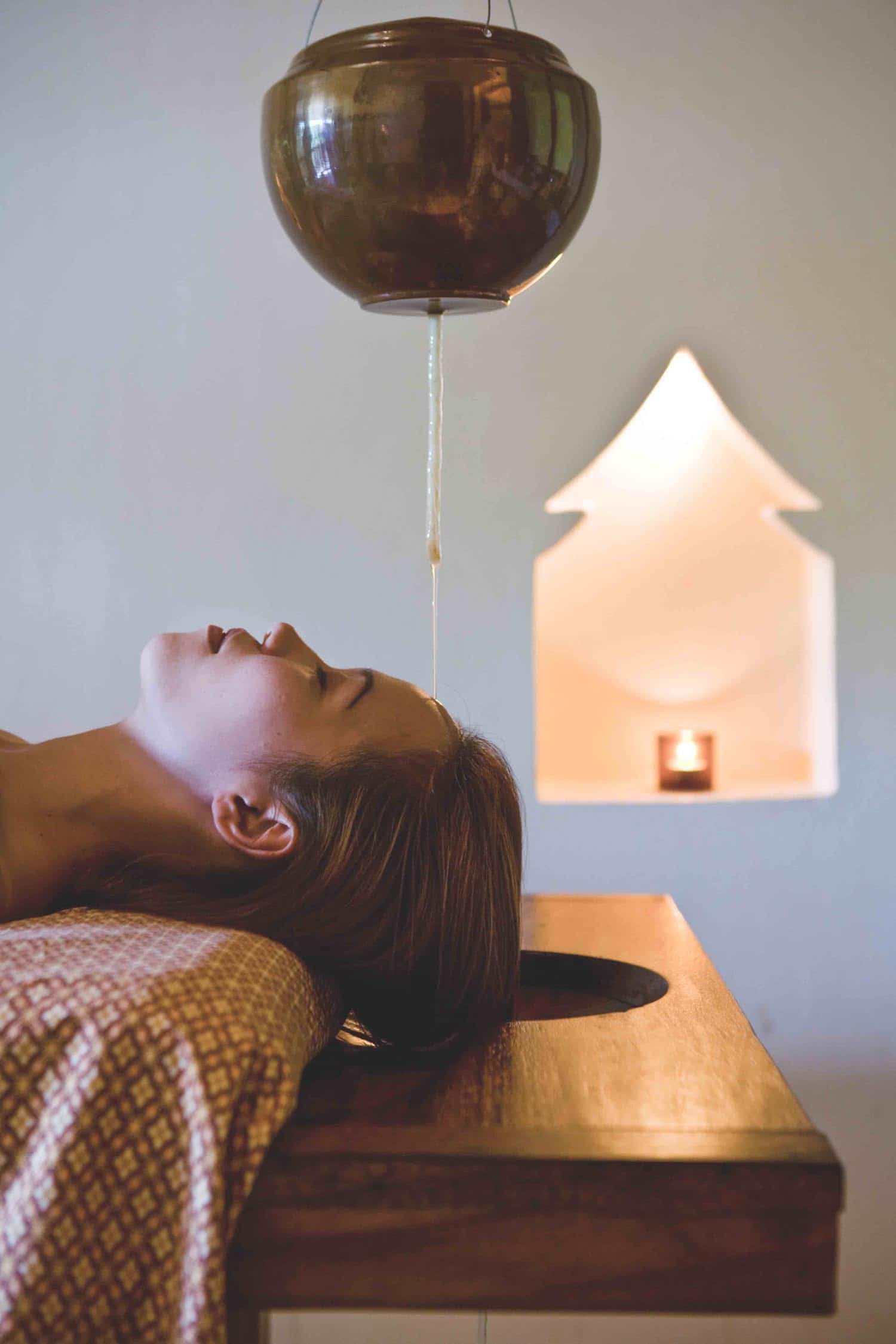The Effect of Bath Meditation on Sleep Quality and Stress Recovery

The Power of Bath Meditation for Stress Recovery and Sleep Improvement
In today’s fast-paced world, where the demands of work and daily life can quickly lead to stress, seeking methods for stress recovery and enhancing sleep quality is becoming increasingly vital. Bath meditation stands out as a simple yet profound practice that merges the healing properties of water with the art of mindfulness to promote relaxation and well-being.
Bath meditation is appealing for its accessibility and effectiveness. Here are a few key features that contribute to its allure:
- Relaxation: The soothing nature of warm water provides an immediate sense of comfort, easing tension and helping to release any physical stress accumulated throughout the day. This warm embrace enhances blood circulation, further inducing a tranquil state.
- Mindfulness: This practice encourages one to slow down and become present in the moment. By focusing on breath and bodily sensations while immersed in water, individuals can cultivate a meditative state, leading to enhanced mental clarity and reduced anxiety.
- Connection: Engaging in bathing rituals can deepen self-connection. Whether it’s through the use of essential oils, herbal infusions, or calming background music, these elements foster an environment conducive to emotional healing and resilience.
Recent studies have indicated a noteworthy correlation between bath meditation practices and improvements in sleep patterns. For instance, a study published in a reputable health journal suggested that warm baths before bed significantly improved sleep quality among participants. Such findings resonate particularly well in Nigeria, a country rich in cultural practices that honor water’s healing properties. Traditional Nigerian therapies often incorporate water, leading many to find a natural inclination toward integrating bath meditation into their lives.
The benefits of enhanced sleep achieved through such practices are manifold, leading to:
- Increased energy levels: Quality sleep revitalizes the body, allowing for improved performance during daily activities.
- Improved cognitive function: Restful sleep supports better concentration and memory, critical for students and professionals alike.
- Better emotional stability: Consistent sleep patterns help regulate mood and promote a more positive outlook on life.
As individuals delve deeper into understanding the relationship between bath meditation, sleep quality, and stress recovery, they may discover a transformative approach to enhancing overall well-being. By exploring local traditions and incorporating bath meditation into their routines, many Nigerians can unlock profound benefits that promote both mental and physical health.

This emerging practice serves as an invitation to embrace the healing powers of water and mindfulness. Cultivating such habits may not only improve personal wellness but contribute positively to community health, reinforcing the importance of self-care in our increasingly demanding world.
LEARN MORE: This related article may interest you
Exploring the Impact of Bath Meditation on Sleep and Stress
Bath meditation not only promotes relaxation but also serves as a pivotal tool in enhancing sleep quality and aiding stress recovery. To comprehend the full impact of this practice, it’s essential to delve into its physiological and psychological mechanisms.
The Physiology of Relaxation
When an individual engages in bath meditation, the body undergoes several physiological changes that can significantly improve sleep patterns. The warm water aids in vasodilation, which expands blood vessels, enhancing circulation and delivering vital nutrients to cells. This process helps to decrease muscle tension, a common contributor to both stress and sleep disturbances.
Furthermore, soaking in warm water raises the body temperature, leading to a subsequent drop in body temperature once exiting the bath. This natural decline in temperature mimics the body’s normal thermoregulation processes, signaling it’s time to sleep. Research suggests that this phenomenon can result in deeper and more restorative sleep, characterized by increased slow-wave sleep, which is crucial for recovery.
The Psychological Benefits of Mindfulness
Amid the tranquil embrace of water, bath meditation opens avenues for mindfulness. The essence of this practice is being present in the moment, allowing for a pause from the overwhelming stimuli that fill our daily lives. Focusing on breath and body sensations can heighten self-awareness, leading to reduced feelings of anxiety and stress.
- Enhanced Self-Awareness: Bath meditation encourages individuals to connect with their feelings, promoting emotional regulation. This heightened state of awareness can prevent the escalation of stressors into anxiety or panic.
- Mindful Breathing: The practice often involves deep breathing techniques, which not only calm the mind but also activate the parasympathetic nervous system. This response fosters a state of relaxation and prepares the body for restorative sleep.
- Nourishing Rituals: Incorporating elements such as essential oils or herbal infusions can create a sensory experience that enhances emotional well-being. Scents like lavender and chamomile are known for their calming properties, further elevating the benefits of bath meditation.
As many Nigerians embrace the art of bath meditation, they also tap into ancestral practices intertwined with local beliefs about water. Rituals that incorporate bathing are prevalent in various cultural practices, conveying a sense of spiritual cleansing and renewal. By weaving these traditions into contemporary mindfulness practices, individuals are likely to experience a profound transformation in their relationship with both stress and sleep.
Investing time in bath meditation can be a gateway to not just personal wellness, but a communal shift in understanding the importance of self-care. As individuals reclaim their ability to unwind and rejuvenate, the collective benefits could enhance mental health throughout the community, leading to a more harmonious society.
| Advantage | Description |
|---|---|
| Enhanced Sleep Quality | Bath meditation promotes relaxation, helping to improve sleep quality through lower heart rates and reduced stress levels. |
| Stress Recovery | Engaging in bath meditation aids in stress recovery, facilitating a mental state that allows the body to heal and recharge effectively. |
The transformative powers of bath meditation extend beyond mere relaxation. Engaging in this mindful practice not only prepares the mind for restful sleep but also significantly enhances overall sleep quality. When the body is immersed in warm water, it triggers physiological changes that lead to improved relaxation. This process not only reduces evening anxiety but also aids in the onset of deeper sleep stages, critical for cognitive function and emotional stability.Moreover, bath meditation serves as a vital tool in stress recovery. By allowing the mind to wander peacefully while submerged in warmth, individuals may find natural pathways to release tension and set aside worries. Research has indicated that such practices can lead to a measurable decrease in cortisol levels, a primary stress hormone. This reduction can contribute to long-lasting benefits, cultivating better emotional health and resilience over time. As such, bath meditation stands out as an innovative approach to nurturing both mind and body, inspiring many to explore its numerous advantages further.
CHECK OUT: Click here to explore more
Integrating Bath Meditation into Daily Routines
Incorporating bath meditation into one’s daily routine can provide significant improvements in both sleep quality and stress recovery. The consistency of engaging in this practice can elevate its effects, making it a vital tool in combatting the increasing levels of stress faced in today’s fast-paced life. For Nigerians, where urbanization is rapidly changing lifestyles, this practice can seamlessly fit into evening rituals, paving the way for a more serene transition into sleep.
Creating the Ideal Environment for Bath Meditation
To maximize the benefits of bath meditation, it’s crucial to design an optimal environment that fosters relaxation. This includes elements such as:
- Quietude: Choosing a time when the household is quiet can significantly enhance the experience. For many, late evenings may be the best option, allowing individuals to disconnect from daily stresses.
- Aromatherapy: Utilizing local ingredients, like essential oils derived from nigerian lavender or scented leaves like mint, can enhance the sensory experience during a bath. Scents can profoundly affect mood and anxiety levels, adding depth to the meditation process.
- Temperature Regulation: Ensuring that the water is at a comfortable temperature is key. Excessive heat may lead to discomfort, while too cool waters may not provide the desired relaxation. A warm bath (ideally between 37°C to 40°C) is effective in heightening relaxation responses.
Scientific Insights into Bath Meditation
Studies have indicated that water immersion has a demonstrable effect on stress reduction and sleep enhancement. A review published in the journal Sleep Medicine Reviews found that warm baths before sleep can significantly lower cortisol levels—our body’s primary stress hormone. The same research highlighted that participants who engaged in bath meditation reported improved sleep satisfaction and duration, aligning perfectly with the needs of modern Nigerians grappling with sleep disorders often exacerbated by stress.
Moreover, the connection between bath meditation and mental health is further underscored by research from the University of Southern Denmark, which links warm water exposure to lower rates of depression and anxiety disorders. In a country like Nigeria, where mental health issues are often stigmatized, promoting simple, accessible practices like bath meditation can empower individuals to take control of their mental well-being.
Embracing Cultural Practices
Historically, many cultures within Nigeria have recognized the therapeutic properties of water. Traditional practices often included communal bathing rituals involving the use of natural elements — a practice that can be modernized through bath meditation. These roots offer a rich historical context that supports the practice’s restoration of balance between body and mind. By re-embracing these cultural beliefs, individuals can foster a sense of belonging and connection while prioritizing self-care.
Ultimately, transitioning to a lifestyle that prioritizes bath meditation can lead not just to improved sleep quality and stress recovery for individuals, but also encourage a collective recognition of the importance of mental health. As communities advocate for wellness rituals integrated into daily life, the widespread benefits could redefine self-care across various generations in Nigeria.
LEARN MORE: This related article may interest you
Conclusion: Embracing Bath Meditation for Wellness
In a rapidly evolving society, where stress and sleep disorders are becoming increasingly prevalent, bath meditation emerges as a powerful ally in enhancing both sleep quality and stress recovery. By incorporating this meditative practice into daily routines, individuals can experience profound mental and emotional benefits. The simple act of immersing oneself in a warm bath, combined with the right sensory elements, creates a conducive environment for relaxation, leading to reduced anxiety and improved sleep patterns.
Research highlights, such as those published in Sleep Medicine Reviews, underscore the physiological advantages of bath meditation, emphasizing its role in lowering cortisol levels while simultaneously boosting sleep satisfaction. As more Nigerians recognize the importance of self-care and mental health, embracing such accessible wellness practices can foster a collective shift toward healthier lifestyles. Moreover, by reconnecting with culturally-rooted practices that celebrate the healing properties of water, individuals can foster community bonds and a shared commitment to well-being.
Moving forward, it’s essential for communities to advocate for the integration of initiatives centered around bath meditation in public health strategies. Such measures not only emphasize personal wellness but also contribute to broader societal benefits. In nurturing both mind and body through this simple yet effective method, Nigerians can reclaim their mental health, paving the way for a brighter, more restful future. As we explore the depths of bath meditation, the cascading effects on sleep quality and stress recovery may just redefine our approach to holistic well-being.


